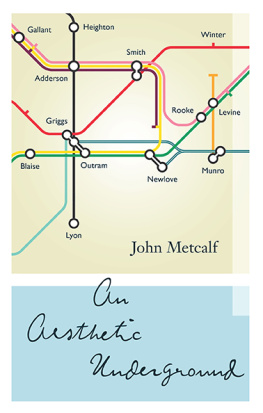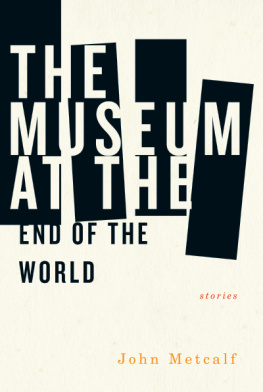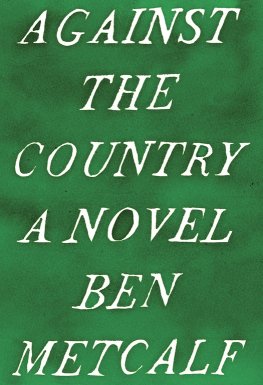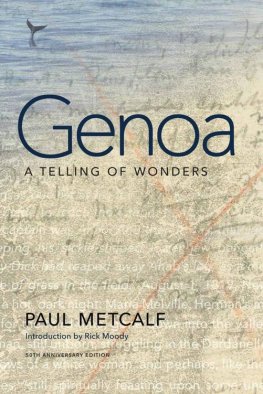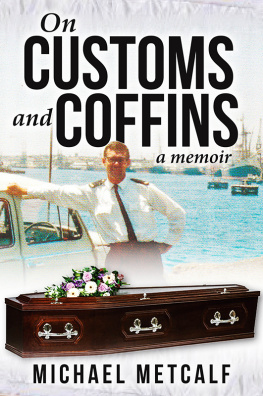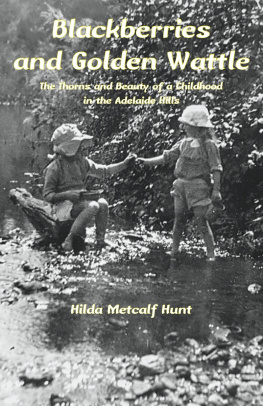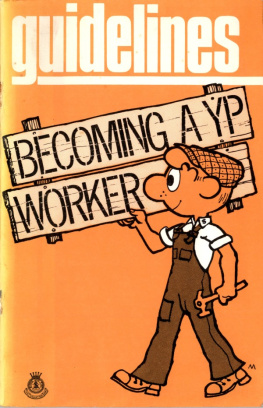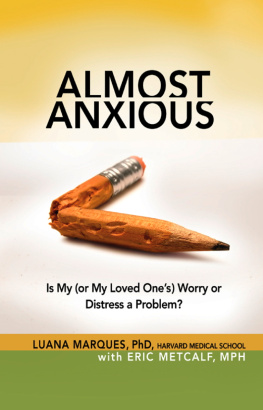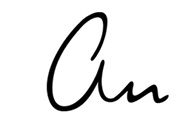


A Literary Memoir
J o h n M e t c a l f
Biblioasis
Copyright John Metcalf , 2014
All rights reserved. No part of this publication may be reproduced
or transmitted in any form or by any means, electronic or mechanical, including photocopying, recording, or any information storage and retrieval system, without permission in writing from the publisher or a licence from The Canadian Copyright Licensing Agency (Access Copyright). For an Access Copyright licence, visit www.accesscopyright.ca or call toll free to 1-800-893-5777 .
Library and Archives Canada Cataloguing in Publication
Metcalf, John, 1938 , author
An aesthetic underground / John Metcalf.
Includes bibliographical references.
Issued in print and electronic formats.
isbn 978-1-927428-95-5 (pbk.). isbn 978-1-927428-96-2 (epub)
. Metcalf, John, 1938 . . Canadian literature (English)PublishingOntarioErin. . Canadian literature (English) th centuryHistory and criticism. . Porcupines Quill, Inc. . EditorsCanadaBiography. . Authors, Canadian (English) th centuryBiography. I. Title.
z483.m48a3 2014 070.5092 c2014-904560-3
c2014-904561-1
Edited by Dan Wells
Copy-edited by Jennifer Franssen
Cover and text design by Gordon Robertson
Biblioasis acknowledges the ongoing financial support of the Government of Canada through the Canada Council for the Arts, Canadian Heritage, the Canada Book Fund; and the Government of Ontario through the Ontario Arts Council.



This book is for
Ron and K ate
Elizabeth and Ethan
Dan and Chantal
Every teaching institution will have its department of cultural studies, an ox not to be gored, and an aesthetic underground will flourish, restoring something of the romance of reading.
harold bloom , The Western Canon
It seemed unto [Don Quixote] very requisite and behooveful... that he himself should become a knight-errant, and go throughout the world, with his horse and armour, to seek adventures, and practise in person all that he had read was used by knights of yore; revenging of all kinds of injuries, and offering himself to occasions and dangers, which, being once happily achieved, might gain him eternal renown.
cervantes , Don Quixote (Sheltons translation, 1612 )
Did I not tell your worship they were windmills? and who could have thought otherwise, except such as had windmills in their head?
sancho panza to don quixote
A VIGNETTE
W hen i was fourteen and attending Beckenham Grammar School for Boys I began spending my Sat urdays hanging around in the yard of the High Street auctioneer. Viewing took place from ten until noon and the auctions started at one and went on until four oclock when the vans started backing in. Porters in green aprons manhandled sideboards and wardrobes and held aloft at the auctioneers What am I bid? the silver-plated coffee sets, the brass fire irons, the baize-lined canteens of cutlery with one fish knife missing.
What attracted me was not the auction but the two coffin-sized boxes on trestles in the yard. These were crammed with the books, spines up, which accumulated from estate sales. They were priced at sixpence each. I stood by the boxes and tidied up the rows after people had rummaged. Customers soon assumed that I was employed to stand there and started giving me their sixpences. These I took into the office.
The clerk in the office with his catalogues and lists of the lots was obviously suspicious of my motives and Id often glance up to see him standing in his doorway, cigarette smoke curling into one eye, staring.
Touching the books gave me profound pleasure. I became so familiar with them, with their bindings, decorations, and typefaces, that I played a game Saturday after Saturday, guessing at a glance a books probable date of publication. Mostly they were novels by the likes of William Harrison Ainsworth, Dornford Yates, Henry Rider Haggard, Sheila Kaye-Smith, Warwick Deeping, A. J. Cronin, Enid Bagnold, Ngaio Marsh, Mrs. Humphry Ward, Rafael Sabatini, Anthony Hope, Margery Allingham, and Hilaire Bellocliterary detritus spe cific to that time and place. But occasionally there were older books in pictorial boards or decorated cloth, my favourite among them the endless novels of G. A. Henty. I was also attracted to the short stories of W. W. Jacobs who was much admired, I later discovered, by P. G. Wodehouse. I was drawn to the work initially by the brilliance of Jacobs illustrator, his friend Will Owen. For years I reread Many Cargoes , Odd Craft , Sailors Knots , Captains All , and Short Cruises .
After a couple of months the clerk grew tired of my constant interruptions to deposit coins in the old Players Navy Cut tin and told me to keep the tin outside and give him the money at the end of the afternoon.
Some while later came the day when he suggested that I keep half a crown for myself. I somehow knew that accepting the money would change the relationship in a way I didnt want, so, fighting my shyness, I wondered if instead I might have a couple of books every week. This request seemed to confirm him in his mild contempt of me and reassure him of my harmlessness.
I wanted those Henty books. I didnt necessarily want to read them, though I did read some. What I wanted was to own them. Not just three or four or ten. I wanted to own all of them. A few minutes at the public library told me there were more than eighty. And so the collection began to grow. Under Drakes Flag , The Lion of the North , With the Allies in Pekin , With Clive in India , With Wolfe in Canada , True to the Old Flag ...
This vignette suggests four motifs which seem to have played themselves out all through my life. The first is books themselves. The second is collecting things. The third is a certain independence of mind and judgement illustrated in my indifference to the clerks contempt. The fourth is the almost magical inability to acquire money.
THE CURATOR
M any autobiographies of writers present a picture of a shy and lonely child delivered from solitude and unsympathetic surroundings by the power of the Word , the childs mind captured, for example, by the illustrations in Foxes Book of Martyrs or struggling with the text of the only book in the house, Pilgrims Progress . Good examples of this typical experience are recorded in James Lavers Museum Piece and in Jocelyn Brookes The Military Orchid .
My own childhood was nothing like this. I cannot remem ber a time when I was not surrounded by books. My father, a Methodist minister, had a fairly large library, most of the volumes, to be sure, theological, but he also had most of the standard poets and first editions of the novels of Conrad and Hardy. Among the more modern poets, he owned Mase field, Housman, Chesterton, Belloc, Yeats, and Blunden.

